New Scientist covers the latest developments in science and technology that will impact your world. New Scientist employs and commissions the best writers in their fields from all over the world. Our editorial team provide cutting-edge news, award-winning features and reports, written in concise and clear language that puts discoveries and advances in the context of everyday life today and in the future.
Elsewhere on New Scientist
World-altering consequences • Geoengineering may be a bad idea, but the alternative could be worse
New Scientist Australian Edition
Close encounters of the berg kind
Geoengineering debate heats up • Urgent measures to reflect sunlight may be the only way to prevent climate tipping points, but there is so much we still don’t know about the risks, finds Michael Le Page
A big removal job
Climate will be hit by Trump’s big bill • The “One Big Beautiful Bill” signed by President Trump will slash support for clean energy, leaving the US far short of its Paris Agreement pledge, finds James Dinneen
Fatal genetic disorder treated by replacing the brain’s immune cells
Interstellar visitor might be the oldest comet ever seen
We may have finally solved a cosmic ray puzzle
Peculiar plant holds Earth’s history • Horsetail plants could provide valuable clues for understanding past and present ecosystems
Alien life may need water – if only to keep cool
Hay fever relief minus the side effects
Moa next on ‘de-extinction’ list • After a controversial project claiming to have resurrected the dire wolf, Colossal Biosciences has announced plans to bring back nine species of the extinct moa, says James Woodford
Antidepressant withdrawal symptoms may be less common than we thought
Thirsty city trees drink water from leaky pipes
Oldest proteins yet recovered found in 18-million-year-old teeth
A youthful brain and immune system may be key to a long life
Revealing the edge of maths • Some numbers are so big that they defy the bounds of mathematics, and mathematicians are closing in on one that may mark the threshold of this abyss, finds Karmela Padavic-Callaghan
Vanishing snow will cut forest carbon storage
Surgical robot operates without human help
Cancer-killing virus nears approval • The virus could see widespread use after shrinking tumours in people with late-stage melanoma
New type of plasma wave found in Jupiter’s auroras
High hopes • Flying is probably the single hardest thing to decarbonise, but an unlikely solution could be at hand, says Mike Berners-Lee
No planet B • Rocky start Scientists have discovered a new type of sedimentary rock made of debris from slag heaps, formed in the geological blink of an eye. Could this be good news, asks Graham Lawton
Starstruck
Puzzled face… • Emoji add a new depth to communications, but what of their cultural impact? Chris Stokel-Walker hoped for more in an illuminating but flawed account
Making medicine shiny • Rebooting healthcare with fabulous tech seems irresistible. But where is the critical analysis, asks Carissa Wong
New Scientist recommends
A leap of good faith • Saving six of Earth’s most endangered species is the mission for a new nature programme. It is a heartwarming call to action, says Gregory Wakeman
Your letters
Back from the dead? • Ambitious projects aim to put dire wolves and woolly mammoths back into our ecosystems. But do we really need them, asks Michael le Page
Hidden magnetism • The discovery of a new type of magnetism could help us solve a long-standing problem in computing, finds Jacklin Kwan
A third kind of magnet
“Shamanism, at its heart, is a means of dealing with...

 Dec 27 2025
Dec 27 2025
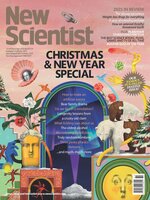 13/20 December 2025
13/20 December 2025
 Dec 06 2025
Dec 06 2025
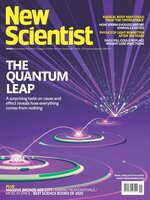 Nov 29 2025
Nov 29 2025
 Nov 22 2025
Nov 22 2025
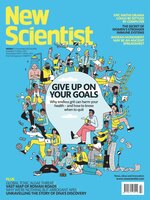 Nov 15 2025
Nov 15 2025
 Nov 08 2025
Nov 08 2025
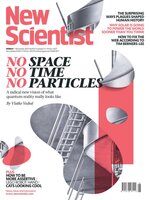 Nov 01 2025
Nov 01 2025
 Oct 25 2025
Oct 25 2025
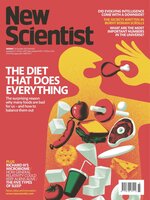 Oct 18 2025
Oct 18 2025
 Oct 11 2025
Oct 11 2025
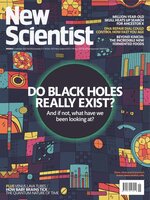 Oct 04 2025
Oct 04 2025
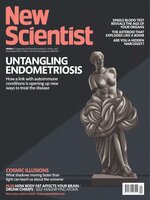 Sep 27 2025
Sep 27 2025
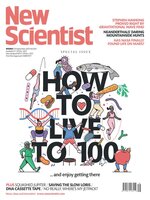 Sep 20 2025
Sep 20 2025
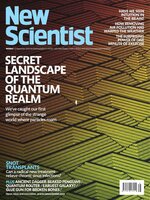 Sep 13 2025
Sep 13 2025
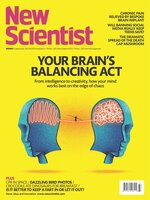 Sep 06 2025
Sep 06 2025
 Aug 30 2025
Aug 30 2025
 Aug 23 2025
Aug 23 2025
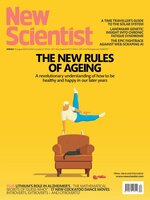 Aug 16 2025
Aug 16 2025
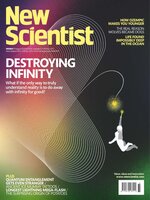 Aug 09 2025
Aug 09 2025
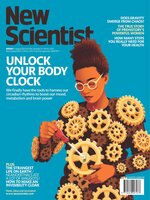 Aug 02 2025
Aug 02 2025
 Jul 26 2025
Jul 26 2025
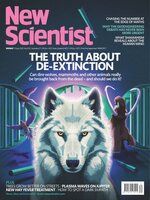 Jul 19 2025
Jul 19 2025
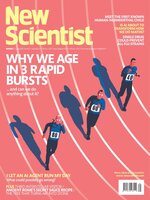 Jul 12 2025
Jul 12 2025